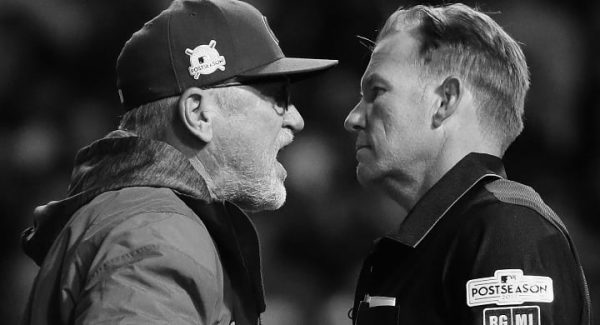Russian Athletes Should Compete in 2018 Games
The International Olympic Committee officially announced Tuesday that it would ban Russia from the upcoming 2018 Winter Olympic Games in Pyeongchang, South Korea. This decision was the highly anticipated response to a years-long investigation of a Russian state-sponsored doping program to enhance the performance of Russian athletes at the 2014 Winter Olympics in Sochi, Russia. Come the start of the games in February, there will be no sight of the Russian flag, no sound of the Russian national anthem, and no Team Russia marching together at the opening ceremony. However, there will still be an opportunity for Russian athletes to participate. Any Russian competitor who can prove themselves clean and unaffiliated with the doping scandal will still have the opportunity to participate in the Games, with the conditions of a neutral flag and uniform that reads “Olympic Athlete from Russia.” While the IOC decision may not allow them the proud victory for the entire country that an Olympic accomplishment usually guarantees, clean Russian athletes should still participate in the upcoming Games.
The IOC’s decision elicited widespread support, but many still received it as somewhat of a shock. The IOC is notoriously known for its reluctance to impose severe punishments for incidents and allegations of cheating. But accounts from the 30-page report published by the World Anti-Doping Agency last year that described the convoluted cheating scandal — which included Russian intelligence service members “replacing urine samples tainted by performance-enhancing drugs with clean urine,” and “passing bottles of urine through a hand-size hole in the wall” — made the scheme impossible to leave unpunished if the IOC still intended to uphold a sense of credibility.
General feelings in Russia towards the upcoming Olympic Games are now greatly mixed. Putin himself responded with mild manners, stating in televised remarks Wednesday that “first of all, we need to say straight that to some extent, we are guilty ourselves.” Putin’s response came as a surprise to many, considering his avoidance of the topic over the past year, as well as his claim that the accusations were timed with the upcoming Russian election in order to spoil his chances for re-election.
Many Russian citizens, however, are responding to the ban with much greater contempt. In a New York Times article, Russian citizens were quoted expressing embarrassment at the notion that nation-less athletes from Russia will “look like refugees” without a country to claim them. Others see the participation of clean athletes as an act of betrayal toward their country. A few even believe the entire doping allegation is a farcical scheme intended to humiliate Russia on an international scale.
“They are always trying to put us down in everything — our way of life, our culture, our history, and now our sport as well,” Russian Foreign Ministry Spokeswoman Maria Zakharova posted on her Facebook page on the day of the decision.
But many former Russian Olympic athletes have come forward to support the participation of the clean contenders in the Pyeongchang games, even if they have to compete as nomads. Yelena Isinbayeva, a championship pole vaulter — who was banned from the 2016 Olympic games due to doping allegations — urged other clean Russian athletes to go, claiming that they would still be recognized as Russian even if they couldn’t sport the flag or sing the anthem. Tatiana Navka, a former championship Russian ice dancer, called the ban a total injustice in an Instagram post but still encouraged clean athletes to decide for themselves whether they want to compete. The clean and promising athletes that the aforementioned refer to include 18-year-old figure skater Evgenia Medvedeva and 30-year-old biathlete Anton Shipulin, both gold medal hopefuls for the Pyeongchang Games who have never tested positive for doping.
While the IOC’s ban on Russian representation at the Olympics was the right decision and could potentially set a standard for increased fairness in the Games, the committee should still encourage clean Russian athletes to participate as individuals. The shameless cheating on the part of the Russian government should not have to impede the Russian athletes who train with honesty and integrity. And hopefully a few of these individual Russian athletes will win, plunging an even deeper thorn in Russia’s side — the country with so much hubris and pride will be unable to claim victory for its own due to one of the most embarrassing international sporting scandals of all time.







